Publications
Articles, publications, books, tools and multimedia features from the U.S. Institute of Peace provide the latest news, analysis, research findings, practitioner guides and reports, all related to the conflict zones and issues that are at the center of the Institute’s work to prevent and reduce violent conflict.
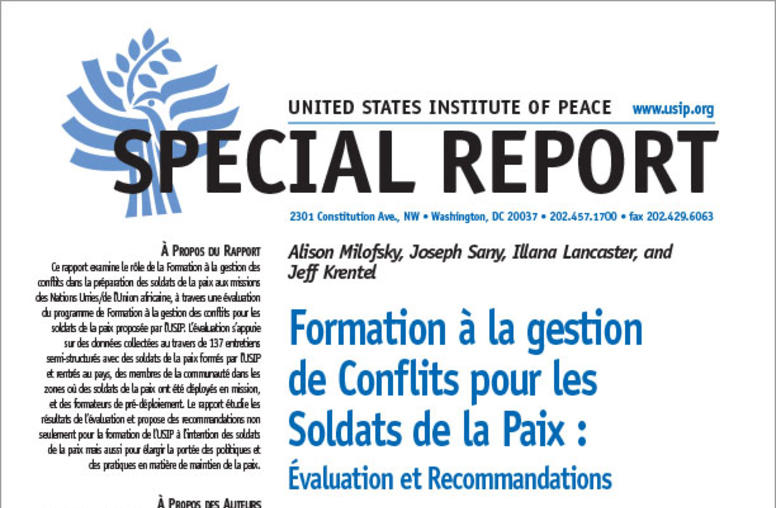
Conflict Management Training for Peacekeepers (French)
Ce rapport examine le rôle de la Formation à la gestion des conflits dans la préparation des soldats de la paix aux missions des Nations Unies/de l’Union africaine, à travers une évaluation du programme de Formation à la gestion des conflits pour les soldats de la paix proposée par l’USIP. L’évaluation s’appuie sur des données collectées au travers de 137 entretiens semi-structurés avec des soldats de la paix formés par l’USIP et rentrés au pays, des membres de la communauté dans les zones où des soldats de la paix ont été déployés en mission, et des formateurs de pré-déploiement. Le rapport étudie les résultats de l’évaluation et propose des recommandations non seulement pour la formation de l’USIP à l’intention des soldats de la paix mais aussi pour élargir la portée des politiques et des pratiques en matière de maintien de la paix.
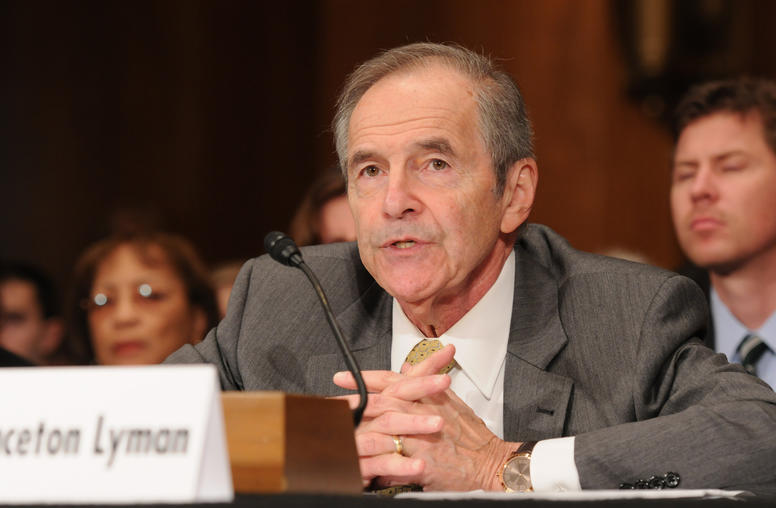
The Questionable Case for Easing Sudan Sanctions
Amb. Princeton N. Lyman testified before the House Foreign Affairs Subcommittee on Africa, Global Health, Global Human Rights & International Organizations

Susan Stigant on South Sudan
Can South Sudan—the world’s youngest country—find peace? USIP’s Susan Stigant discusses the country’s political crisis and how its exacerbated by the outgrowth of opposition groups, millions of displaced citizens, and other complex challenges to restoring stability. Nevertheless, Stigant explains that peace is possible with U.S. leadership.
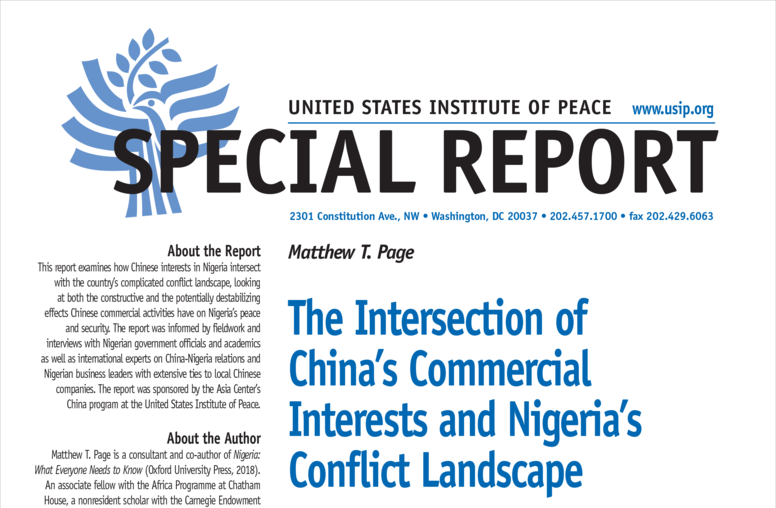
The Intersection of China’s Commercial Interests and Nigeria’s Conflict Landscape
Like Washington, Beijing has an abiding strategic interest in promoting stability and security in Nigeria—the largest economy in Africa, a major oil and gas producer, and on track to become the world’s third most populous country by 2050. Yet from the Boko Haram insurgency in its northeast to farmer-herder clashes in its Middle Belt...

Oge Onubogu on Nigeria’s Elections
As Africa’s most populous country with its biggest economy, Nigeria is a bellwether for the continent. On Saturday, Nigerians will go to the polls to elect their next president and members of the National Assembly. This critical election will be a test of the resilience of Nigeria’s democratic institutions and widely watched by the international community, says USIP’s Oge Onubogu.
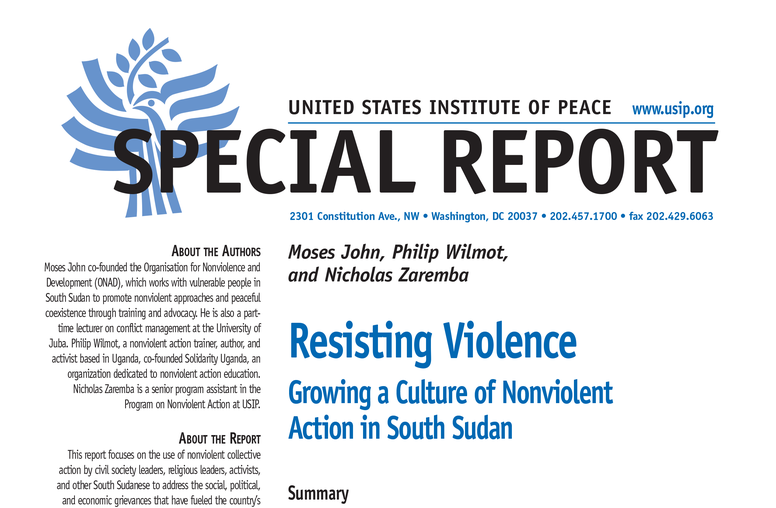
Resisting Violence: Growing a Culture of Nonviolent Action in South Sudan
Since the outbreak of civil war in December 2013, South Sudan has endured one of the worst humanitarian crises in modern times. Still, amid the constant threat of war-related violence and economic hardship, South Sudanese activists are managing to launch and sustain nonviolent movements to address the social, political, and economic grievances that have fueled the country’s ongoing conflicts.
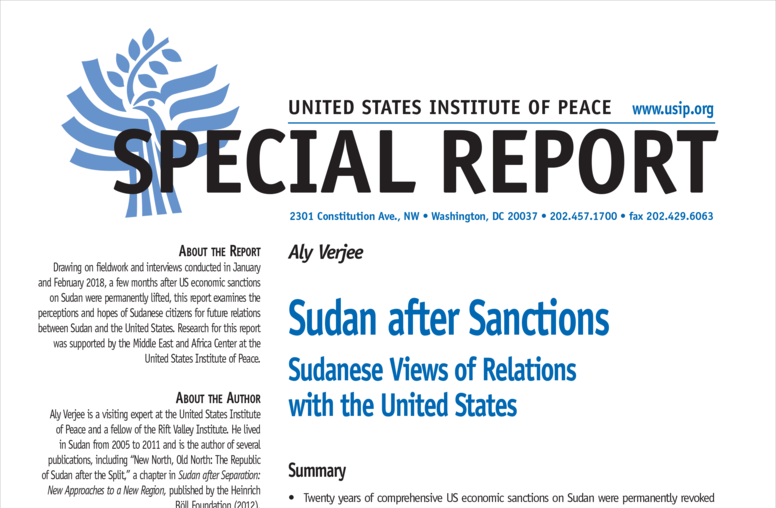
Sudan after Sanctions
In October 2017, the United States lifted a wide range of economic sanctions that had been in place against Sudan for two decades. Aly Verjee, a visiting expert at the United States Institute of Peace, recently interviewed roughly 50 Sudanese—including students, business owners, doctors, laborers, activists, and others outside the government-connected elite—on what this first step in the normalization of relations between Sudan and the United States might mean for the future of their country.
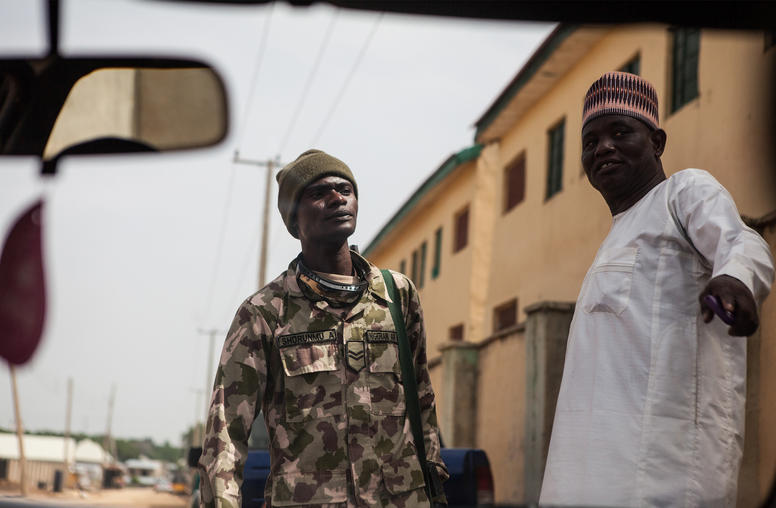
Civilian-Led Governance and Security in Nigeria After Boko Haram
Focusing on northeast Nigeria and the Lake Chad Basin, this Special Report outlines the rise of the Boko Haram insurgency in Nigeria and the security and governance challenges in the wake of its possible decline.
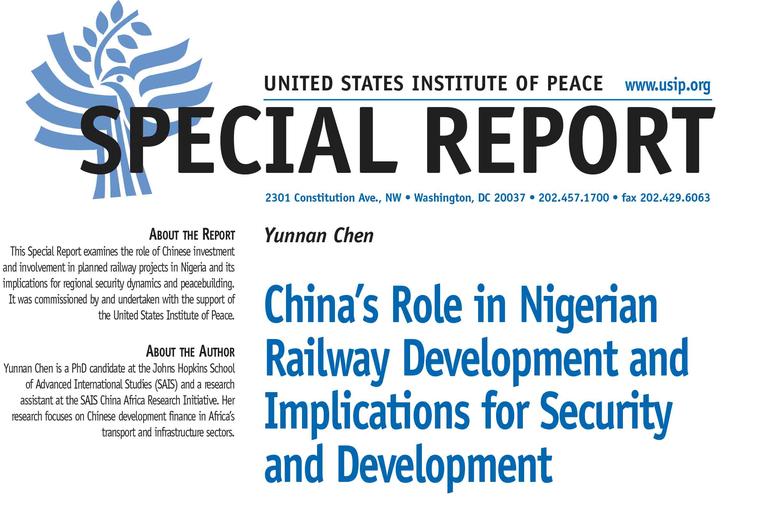
China's Role in Nigerian Railway Development and Implications for Security and Development
This report focuses on Chinese involvement and investment in Nigeria’s railway sector and the intersection of planned projects and regional security dynamics. Examining the role of Chinese loan financ
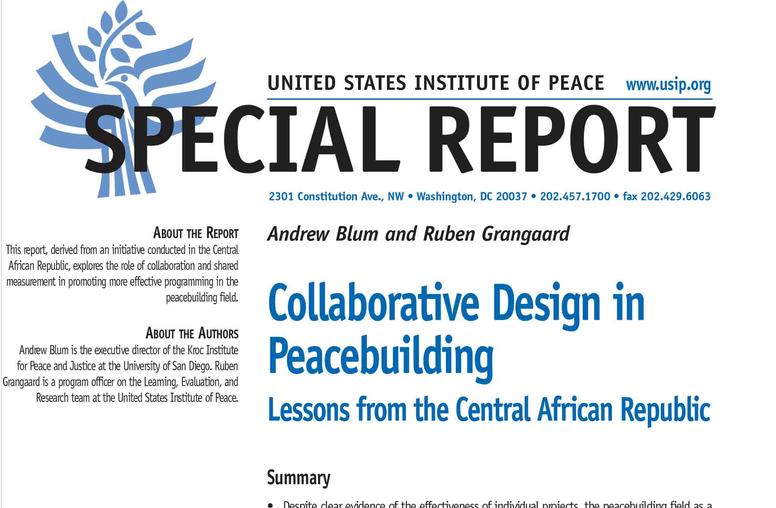
Collaborative Design in Peacebuilding
Despite clear evidence of the effectiveness of individual peacebuilding efforts, the field as a whole often struggles to have a meaningful collective impact on broader conflict dynamics. This report, drawing on a pilot initiative in the Central African Republic—IMPACT-CAR—to develop a shared measurement and reporting system aimed at improving collaboration and shared learning across peacebuilding implementers, reflects on the results, successes, and challenges of the initiative to offer a road map for future initiatives focused on collective impact in the peacebuilding field.